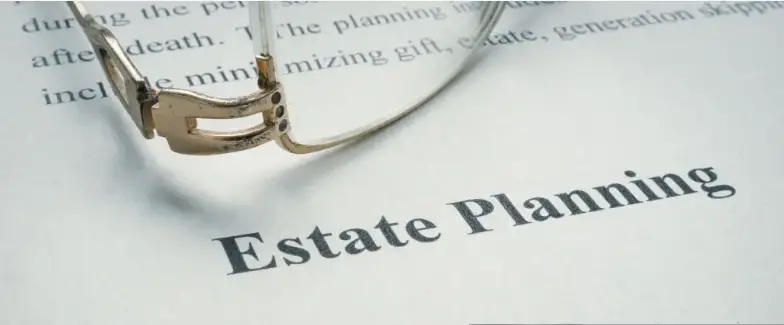In securing your legacy and making sure that your loved ones are taken care of after you are gone, estate planning is essential. While leaving a lasting impact on your grandkids, one thoughtful avenue is to pass your hard-earned retirement savings. With estate planning entailing more than drafting a will, you have to consider the fundamental elements of trust, beneficiaries, and the potential tax implications that come with your retirement savings. As you wonder how to leave grandkids your retirement savings, be aware it’s not all about the will.
How to Leave Grandkids Your Retirement Savings
There are various steps to take in order to ensure that you have managed the process well. With your absence in the future, conflicts might occur and your grandchildren find themselves in a challenging situation. By ensuring that all is in order before you pass away, particularly in the case of your retirement savings, a lot of these problems could be avoided.
Retirement Savings Assessment
Assessing your retirement savings provides you with the foundational understanding necessary to shape a thoughtful and effective strategy for passing on assets to your grandchildren. It entails a meticulous examination of your financial landscape. This primarily focuses on your retirement accounts and other assets.

Among the key components of this assessment is the stock-taking of retirement accounts and assets. Here, you identify all your retirement accounts, including individual retirement accounts (IRAs), 401(k) and pensions. You will have to compile a comprehensive list of any other significant assets like real estate, stocks, bonds, and business holdings. All that contributes to your financial portfolio.
You will then determine the current value of each retirement account and asset. For this, you will have to obtain updated statements and also engage with financial professionals to conduct a thorough valuation.
Update Your Will and Estate Plan
This is a pivotal step in the process of leaving your retirement savings to your grandchildren. This phase requires careful consideration and often entails consulting with an experienced estate planning attorney.
The key reason behind this step is because of the dynamic nature of life – your intentions might change over time. Hence, it is essential that your will reflects your evolving wishes regarding the distribution of retirement savings. Make sure that you have mentioned the names of your grandchildren in the will as beneficiaries.
Read About: Best Way to Leave Money to Grandchildren
Also, consider making trust. Trusts offer a level of control and flexibility that may not be attainable through a will alone. You would be able to stipulate how and when your grandchildren receive their inheritances. Unlike probate proceedings, which are public, trusts provide a degree of privacy. This allows your wishes to be carried out more discreetly.
Designation of Beneficiaries on Retirement Accounts
When you want to distribute retirement savings according to your wishes, you have to designate your beneficiaries on your retirement account. This entails specifying people who will inherit the funds in these accounts.
In this case, you will have to understand the procedures and documentation required to update beneficiary designations. Typically, this involves contacting the financial institution managing your retirement accounts and completing the necessary forms. To do this effectively, you would have to seek guidance from financial advisors or legal professionals who can provide insights into the specific steps.

Be aware that clarity is key. You need to clearly clarify each grandchild by name. Avoid using generic terms or vague references to ensure that there is no ambiguity about your intentions. Also, decide whether you want to distribute the funds equally or allocate specific amounts or percentages based on individual circumstances.
Tax Implications
Estate taxes are levied on the total value of a person’s estate at the time of their death. This tax applies to the estate as a whole, including real estate, investments, and other assets. Each jurisdiction holds different thresholds for estate tax exemptions and amounts exceeding the threshold are subject to taxation. Due to this, you would have to consult professionals from tax advisors to estate planning attorneys. They would assist you in properly understanding the current tax laws in your region.
In addition to estate taxes, there are jurisdictions that impose inheritance taxes on the beneficiaries receiving the assets. Unlike estate taxes, which are based on the total estate value, inheritance taxes are based on the individual inheritance received by each beneficiary.
Do not forget to take advantage of lifetime gift exemptions. They allow you to reduce the taxable value of your estate by gifting assets to your grandchildren during your lifetime.
Considering Trusts – Generation-Skipping Trusts
As the name implies, Generation-skipping trusts bypass a generation in the distribution of assets. Rather than transferring assets to your children directly, these trusts facilitate a seamless transfer of wealth directly to your grandchildren.
A primary allure of these trusts lies in their potential to minimize tax liabilities. By skipping a generation, these trusts can capitalize on tax exemptions and deductions, ultimately preserving a more significant portion of the estate for your grandkids. They also offer a structured and secure framework for safeguarding assets. Placing these assets within the trust, you get to retain a level of control while ensuring they are shielded from potential creditors or legal challenges.
Leverage Life Insurance
Life insurance serves as a powerful risk mitigation tool. By designating beneficiaries, you create a financial safety net that ensures they receive a predetermined sum upon your passing. This is particularly vital if a major portion of your wealth is tied up in illiquid assets, like real estate or business holdings.

Incorporating life insurance into your estate plan serves as a means to secure the financial future of your grandchildren. The death benefit from the policy provides them with a lump sum of money, offering stability, supporting education, and/or assisting with major life events.
Estate liquidity should also be a consideration. This is especially true if your assets are not easily converted into cash. Life insurance provides immediate liquidity to cover potential estate taxes, debts, and other financial obligations. Due to this, it is ensured that your grandchildren will not face unnecessary financial burdens during the estate settlement process.
Relevant Account Considerations
Traditional IRA: When leaving a Tradition IRA to your grandkids, you ought to be aware of the 10-year withdrawal rule imposed on heirs. This means that beneficiaries must withdraw the funds within a decade, potentially triggering income tax implications. In order to mitigate this, consider Roth conversions. Converting a Traditional IRA to a Roth IRA offers tax advantages for beneficiaries. This is because Roth IRAs are income-tax-free for heirs, hence providing a more tax-efficient way to pass on wealth.
Roth IRA: Beneficiaries withdraw contributions tax-fee, providing them with flexibility. This is what makes it an attractive option for passing on wealth.
401(k): Make sure that you have carefully checked beneficiary designations to ensure your wishes are accurately reflected. Consider naming your children as primary beneficiaries and your grandkids as contingent beneficiaries. This designation structure makes sure that if your children are not living at the same time of your passing, your grandchildren gain access to the funds.








